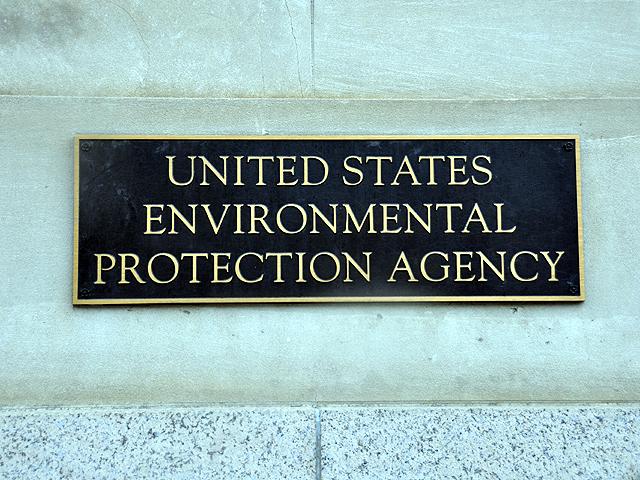Ethanol, Ag Intervene in RFS Lawsuit
Ethanol, Ag Groups Rally Behind EPA on Rejection of 69 Small-Refinery Exemptions
LINCOLN, Neb. (DTN) -- The major biofuels interest groups and National Farmers Union are trying to intervene in a lawsuit challenging EPA's recent decision to reject 69 pending applications for small-refinery exemptions to the Renewable Fuel Standard, according to a motion filed with a federal appeals court on Tuesday.
As part of a broad RFS rule proposed by the Biden administration, EPA decided to change course on how the agency determines whether small refiners qualify for exemptions.
That action came after the Trump administration granted 88 such petitions from 2016 to 2020. The biofuels industry estimated those exemptions cost producers some 4.5 billion gallons in lost demand.
Wynnewood Refining Company LLC sued EPA and asked the U.S. Court of Appeals for the District of Columbia Circuit to review the Biden administration reversal of the Trump policy.
In a motion filed with the court Tuesday, the Renewable Fuels Association, Growth Energy, the American Coalition for Ethanol and National Farmers Union said their interests are not well represented in the case by other parties, including the EPA.
"EPA, in representing its institutionally biased view of the RFS program and of SREs, will not adequately represent the private interests of the trade associations movants or their members," the motion said. "Indeed, as has happened in numerous prior RFS cases, EPA's arguments here may in some respects be in tension with movants' interests and arguments."
The groups said intervening in the case was important to "protect their substantial interests."
On June 3, 2022, EPA denied 69 SRE petitions for compliance years 2016 to 2021, based on what the agency said was a revised approach to the program.
P[L1] D[0x0] M[300x250] OOP[F] ADUNIT[] T[]
EPA adopted the approach in response to the U.S. Court of Appeals to the 10th Circuit's decision to invalidate the agency's prior interpretation.
Specifically, EPA determined in June 2022 that small refineries are eligible for exemptions only if compliance causes "disproportionate economic hardship." EPA said all obligated parties including small refineries face the same proportional costs to comply with the RFS.
The decision was based in large part on the idea that obligate parties are able to pass along their costs to purchase renewable identification numbers, or RINs, down the supply chain. In addition, EPA also denied 36 pending SRE petitions for the 2018 compliance year. That particular action also is the subject of litigation.
In a joint statement following the motion to intervene, the groups said the agency's decision to deny the petitions was important for the future of the industry.
"EPA's decision in June to deny 69 SRE petitions helped strengthen U.S. energy security, protect the climate and deliver relief at the pump during a period of record-high gas prices," the groups said.
"Now, certain refiners want to reverse this process and turn back the clock to an era of gross mismanagement and abuse of the SRE provisions of the RFS program. For far too long, many refiners got away with dodging their obligations to blend lower-carbon biofuel into the fuel supply. EPA's denial of these SRE petitions provides a clean slate to get the RFS back on track as we head into a new era for this important program. Holding refiners accountable will ensure lower prices and cleaner options at the pump for American families."
In August 2019, the Trump administration approved 31 SREs for the 2018 RVO compliance year.
A coalition of biofuels and ag leaders, including Growth Energy, filed a petition in the same court challenging EPA's decision.
In that case, the coalition asked the court to stay the 2018 SRE case in November 2019 pending the outcome of related litigation in both the U.S. Court of Appeals for the 10th Circuit and D.C. appeals court.
In January 2020, the 10th Circuit ruled in Renewable Fuels Association et al. v. EPA that the agency has no power to "extend" an exemption that had lapsed.
The court also held EPA lacks authority to grant an exemption based on hardships not caused by RFS compliance, and also found it was "arbitrary and capricious" for EPA to ignore its own prior studies showing that refiners recoup RFS compliance costs.
The Supreme Court on June 25, 2021, vacated the 10th Circuit ruling in HollyFrontier v. Renewable Fuels Association that EPA may only extend continuously pre-existing exemptions but the other two holdings from the 10th Circuit decision remained intact.
Thus, EPA had the opportunity to apply the other two 10th Circuit precedents not challenged in the HollyFrontier case and request a remand and vacatur of the 31 SREs at issue in the D.C. Circuit.
However, on Aug. 25, 2021, EPA instead filed a motion to remand the SREs without vacatur. In response, the D.C. Circuit remanded the exemptions back to EPA, but, as a result of this biofuel coalition's motion in opposition, required the agency to make new determinations on the contested SREs no later than April 7, 2022.
Read more on DTN:
"EPA's RFS Volumes Include Ethanol Cuts," https://www.dtnpf.com/…
Todd Neeley can be reached at todd.neeley@dtn.com
Follow him on Twitter @DTNeeley
(c) Copyright 2022 DTN, LLC. All rights reserved.



